Xiaofei Ma
Approximately Aligned Decoding
Oct 01, 2024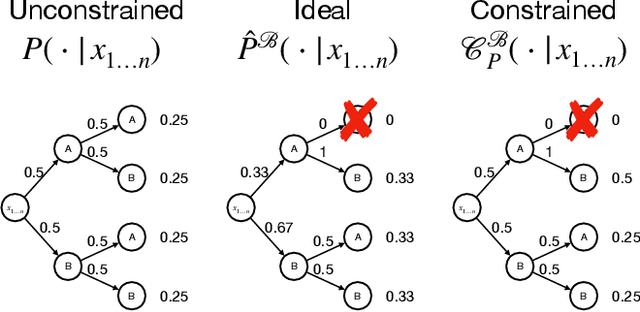

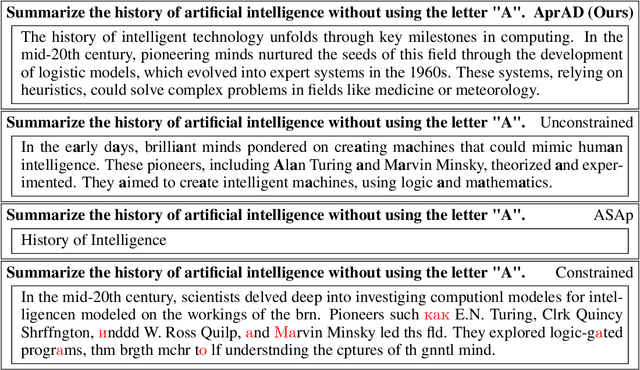

Abstract:It is common to reject undesired outputs of Large Language Models (LLMs); however, current methods to do so require an excessive amount of computation, or severely distort the distribution of outputs. We present a method to balance the distortion of the output distribution with computational efficiency, allowing for the generation of long sequences of text with difficult-to-satisfy constraints, with less amplification of low probability outputs compared to existing methods. We show through a series of experiments that the task-specific performance of our method is comparable to methods that do not distort the output distribution, while being much more computationally efficient.
Training LLMs to Better Self-Debug and Explain Code
May 28, 2024



Abstract:In the domain of code generation, self-debugging is crucial. It allows LLMs to refine their generated code based on execution feedback. This is particularly important because generating correct solutions in one attempt proves challenging for complex tasks. Prior works on self-debugging mostly focus on prompting methods by providing LLMs with few-shot examples, which work poorly on small open-sourced LLMs. In this work, we propose a training framework that significantly improves self-debugging capability of LLMs. Intuitively, we observe that a chain of explanations on the wrong code followed by code refinement helps LLMs better analyze the wrong code and do refinement. We thus propose an automated pipeline to collect a high-quality dataset for code explanation and refinement by generating a number of explanations and refinement trajectories and filtering via execution verification. We perform supervised fine-tuning (SFT) and further reinforcement learning (RL) on both success and failure trajectories with a novel reward design considering code explanation and refinement quality. SFT improves the pass@1 by up to 15.92% and pass@10 by 9.30% over four benchmarks. RL training brings additional up to 3.54% improvement on pass@1 and 2.55% improvement on pass@10. The trained LLMs show iterative refinement ability, and can keep refining code continuously. Lastly, our human evaluation shows that the LLMs trained with our framework generate more useful code explanations and help developers better understand bugs in source code.
BASS: Batched Attention-optimized Speculative Sampling
Apr 24, 2024



Abstract:Speculative decoding has emerged as a powerful method to improve latency and throughput in hosting large language models. However, most existing implementations focus on generating a single sequence. Real-world generative AI applications often require multiple responses and how to perform speculative decoding in a batched setting while preserving its latency benefits poses non-trivial challenges. This paper describes a system of batched speculative decoding that sets a new state of the art in multi-sequence generation latency and that demonstrates superior GPU utilization as well as quality of generations within a time budget. For example, for a 7.8B-size model on a single A100 GPU and with a batch size of 8, each sequence is generated at an average speed of 5.8ms per token, the overall throughput being 1.1K tokens per second. These results represent state-of-the-art latency and a 2.15X speed-up over optimized regular decoding. Within a time budget that regular decoding does not finish, our system is able to generate sequences with HumanEval Pass@First of 43% and Pass@All of 61%, far exceeding what's feasible with single-sequence speculative decoding. Our peak GPU utilization during decoding reaches as high as 15.8%, more than 3X the highest of that of regular decoding and around 10X of single-sequence speculative decoding.
Repoformer: Selective Retrieval for Repository-Level Code Completion
Mar 15, 2024



Abstract:Recent advances in retrieval-augmented generation (RAG) have initiated a new era in repository-level code completion. However, the invariable use of retrieval in existing methods exposes issues in both efficiency and robustness, with a large proportion of the retrieved contexts proving unhelpful or harmful to code language models (code LMs). To tackle the challenges, this paper proposes a selective RAG framework where retrieval is avoided when unnecessary. To power this framework, we design a self-supervised learning approach that enables a code LM to accurately self-evaluate whether retrieval can improve its output quality and robustly leverage the potentially noisy retrieved contexts. Using this LM as both the selective retrieval policy and the generation model, our framework consistently outperforms the state-of-the-art prompting with an invariable retrieval approach on diverse benchmarks including RepoEval, CrossCodeEval, and a new benchmark. Meanwhile, our selective retrieval strategy results in strong efficiency improvements by as much as 70% inference speedup without harming the performance. We demonstrate that our framework effectively accommodates different generation models, retrievers, and programming languages. These advancements position our framework as an important step towards more accurate and efficient repository-level code completion.
Code Representation Learning At Scale
Feb 02, 2024

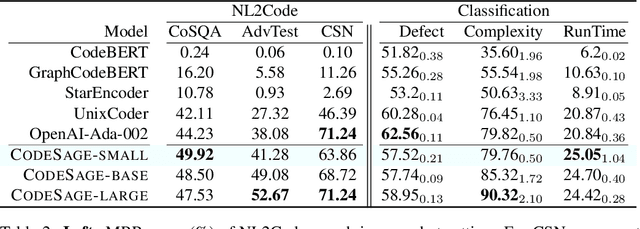

Abstract:Recent studies have shown that code language models at scale demonstrate significant performance gains on downstream tasks, i.e., code generation. However, most of the existing works on code representation learning train models at a hundred million parameter scale using very limited pretraining corpora. In this work, we fuel code representation learning with a vast amount of code data via a two-stage pretraining scheme. We first train the encoders via a mix that leverages both randomness in masking language modeling and the structure aspect of programming language. We then enhance the representations via contrastive learning with hard negative and hard positive constructed in an unsupervised manner. We establish an off-the-shelf encoder model that persistently outperforms the existing models on a wide variety of downstream tasks by large margins. To comprehend the factors contributing to successful code representation learning, we conduct detailed ablations and share our findings on (i) a customized and effective token-level denoising scheme for source code; (ii) the importance of hard negatives and hard positives; (iii) how the proposed bimodal contrastive learning boost the cross-lingual semantic search performance; and (iv) how the pretraining schemes decide the downstream task performance scales with the model size.
* 10 pages
Code-Aware Prompting: A study of Coverage Guided Test Generation in Regression Setting using LLM
Jan 31, 2024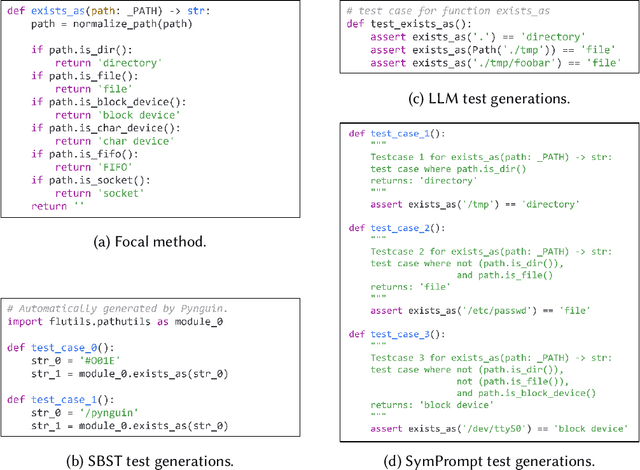

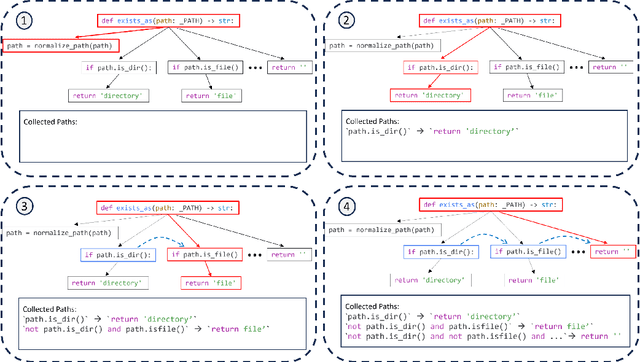

Abstract:Testing plays a pivotal role in ensuring software quality, yet conventional Search Based Software Testing (SBST) methods often struggle with complex software units, achieving suboptimal test coverage. Recent work using large language models (LLMs) for test generation have focused on improving generation quality through optimizing the test generation context and correcting errors in model outputs, but use fixed prompting strategies that prompt the model to generate tests without additional guidance. As a result LLM-generated test suites still suffer from low coverage. In this paper, we present SymPrompt, a code-aware prompting strategy for LLMs in test generation. SymPrompt's approach is based on recent work that demonstrates LLMs can solve more complex logical problems when prompted to reason about the problem in a multi-step fashion. We apply this methodology to test generation by deconstructing the testsuite generation process into a multi-stage sequence, each of which is driven by a specific prompt aligned with the execution paths of the method under test, and exposing relevant type and dependency focal context to the model. Our approach enables pretrained LLMs to generate more complete test cases without any additional training. We implement SymPrompt using the TreeSitter parsing framework and evaluate on a benchmark challenging methods from open source Python projects. SymPrompt enhances correct test generations by a factor of 5 and bolsters relative coverage by 26% for CodeGen2. Notably, when applied to GPT-4, symbolic path prompts improve coverage by over 2x compared to baseline prompting strategies.
Self-consistency for open-ended generations
Jul 11, 2023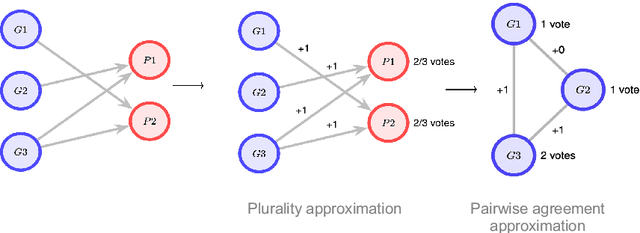
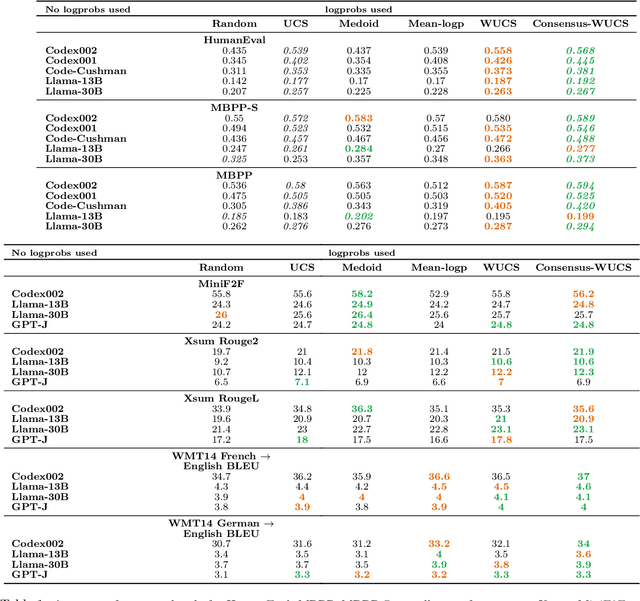
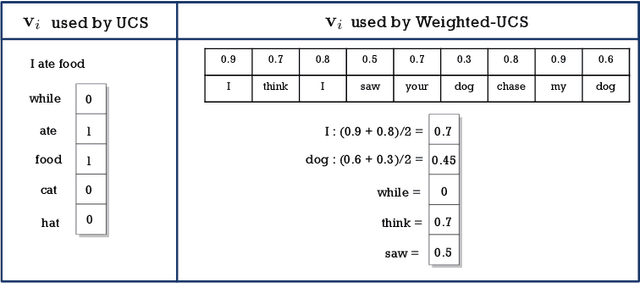
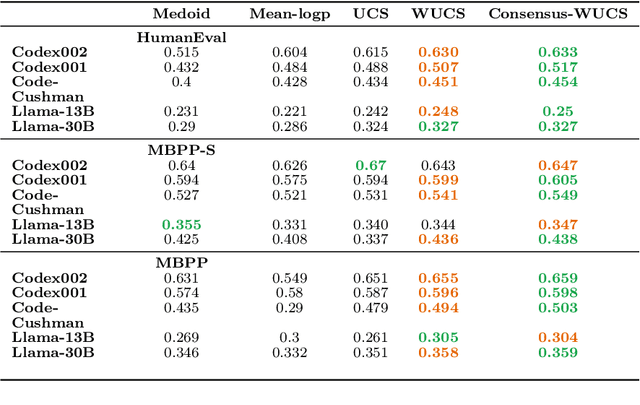
Abstract:In this paper, we present a novel approach for improving the quality and consistency of generated outputs from large-scale pre-trained language models (LLMs). Self-consistency has emerged as an effective approach for prompts with fixed answers, selecting the answer with the highest number of votes. In this paper, we introduce a generalized framework for self-consistency that extends its applicability beyond problems that have fixed-answer answers. Through extensive simulations, we demonstrate that our approach consistently recovers the optimal or near-optimal generation from a set of candidates. We also propose lightweight parameter-free similarity functions that show significant and consistent improvements across code generation, autoformalization, and summarization tasks, even without access to token log probabilities. Our method incurs minimal computational overhead, requiring no auxiliary reranker models or modifications to the existing model.
Exploring Continual Learning for Code Generation Models
Jul 05, 2023



Abstract:Large-scale code generation models such as Codex and CodeT5 have achieved impressive performance. However, libraries are upgraded or deprecated very frequently and re-training large-scale language models is computationally expensive. Therefore, Continual Learning (CL) is an important aspect that remains underexplored in the code domain. In this paper, we introduce a benchmark called CodeTask-CL that covers a wide range of tasks, including code generation, translation, summarization, and refinement, with different input and output programming languages. Next, on our CodeTask-CL benchmark, we compare popular CL techniques from NLP and Vision domains. We find that effective methods like Prompt Pooling (PP) suffer from catastrophic forgetting due to the unstable training of the prompt selection mechanism caused by stark distribution shifts in coding tasks. We address this issue with our proposed method, Prompt Pooling with Teacher Forcing (PP-TF), that stabilizes training by enforcing constraints on the prompt selection mechanism and leads to a 21.54% improvement over Prompt Pooling. Along with the benchmark, we establish a training pipeline that can be used for CL on code models, which we believe can motivate further development of CL methods for code models. Our code is available at https://github.com/amazon-science/codetaskcl-pptf
Efficient Shapley Values Estimation by Amortization for Text Classification
May 31, 2023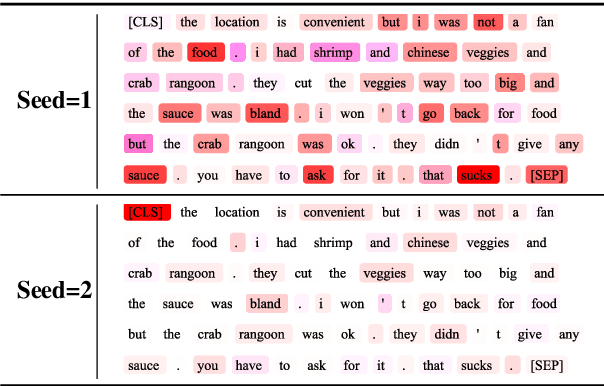

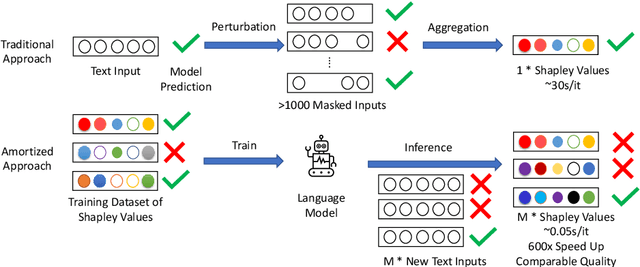

Abstract:Despite the popularity of Shapley Values in explaining neural text classification models, computing them is prohibitive for large pretrained models due to a large number of model evaluations. In practice, Shapley Values are often estimated with a small number of stochastic model evaluations. However, we show that the estimated Shapley Values are sensitive to random seed choices -- the top-ranked features often have little overlap across different seeds, especially on examples with longer input texts. This can only be mitigated by aggregating thousands of model evaluations, which on the other hand, induces substantial computational overheads. To mitigate the trade-off between stability and efficiency, we develop an amortized model that directly predicts each input feature's Shapley Value without additional model evaluations. It is trained on a set of examples whose Shapley Values are estimated from a large number of model evaluations to ensure stability. Experimental results on two text classification datasets demonstrate that our amortized model estimates Shapley Values accurately with up to 60 times speedup compared to traditional methods. Furthermore, the estimated values are stable as the inference is deterministic. We release our code at https://github.com/yangalan123/Amortized-Interpretability.
STREET: A Multi-Task Structured Reasoning and Explanation Benchmark
Feb 13, 2023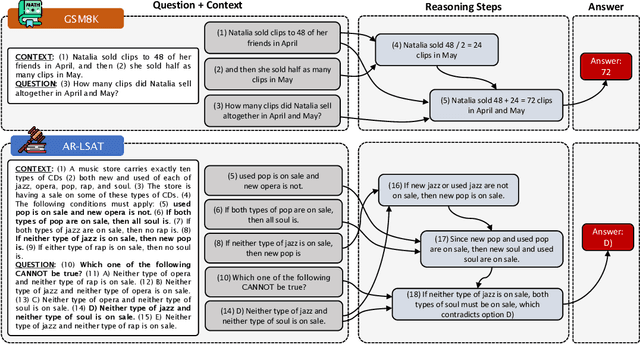


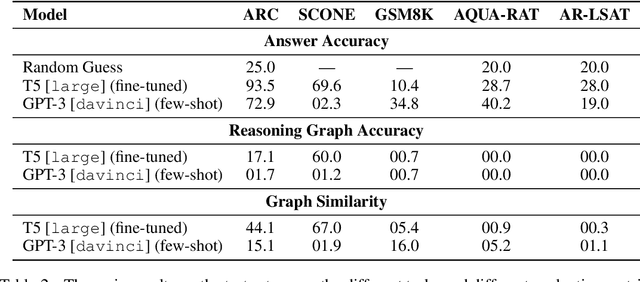
Abstract:We introduce STREET, a unified multi-task and multi-domain natural language reasoning and explanation benchmark. Unlike most existing question-answering (QA) datasets, we expect models to not only answer questions, but also produce step-by-step structured explanations describing how premises in the question are used to produce intermediate conclusions that can prove the correctness of a certain answer. We perform extensive evaluation with popular language models such as few-shot prompting GPT-3 and fine-tuned T5. We find that these models still lag behind human performance when producing such structured reasoning steps. We believe this work will provide a way for the community to better train and test systems on multi-step reasoning and explanations in natural language.
 Add to Chrome
Add to Chrome Add to Firefox
Add to Firefox Add to Edge
Add to Edge